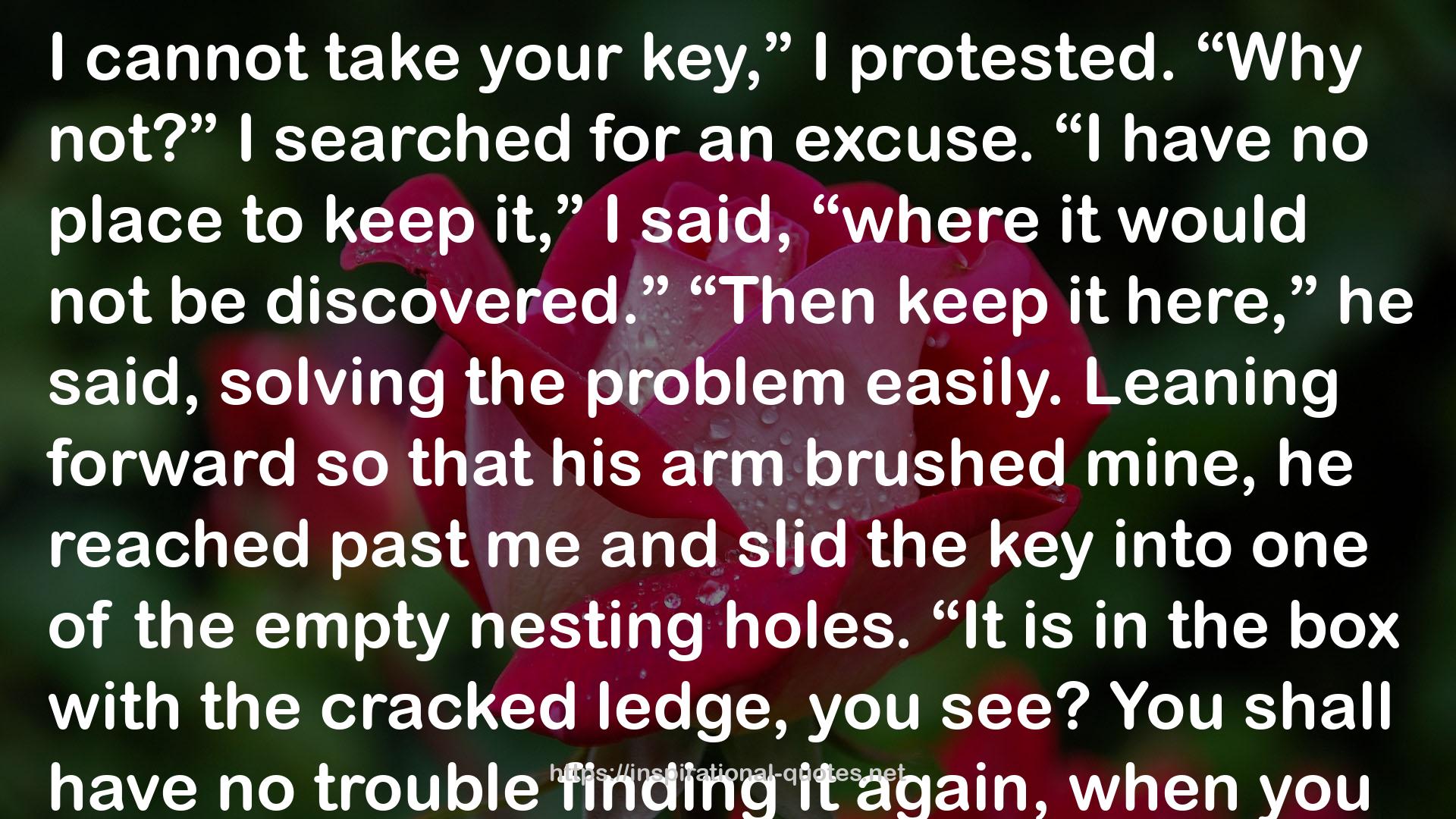" I cannot take your key,” I protested. “Why not?” I searched for an excuse. “I have no place to keep it,” I said, “where it would not be discovered.” “Then keep it here,” he said, solving the problem easily. Leaning forward so that his arm brushed mine, he reached past me and slid the key into one of the empty nesting holes. “It is in the box with the cracked ledge, you see? You shall have no trouble finding it again, when you need it.” He straightened, but did not draw away. The air grew thick between us. “Which leaves but the matter of your forfeit,” he said, in a low and languid voice. “My forfeit?” “For stealing one of my pigeons,” he reminded me. “I do not steal this bird, my lord,” I said evenly, “and ’twas my understanding that the dovecote belonged to my uncle.” “Your uncle makes use of it, to be sure, but it was built by my ancestors, and it lies on my land. My ownership is indisputable.” I tried to voice a protest, but he merely pressed closer, shaking his head. “’Tis no use denying the crime,” he told me, “with the evidence there in your hands. ’Tis plainly theft, and I have the right to exact a penalty.” He held me still beneath his kiss with his free hand, his fingers sliding beneath the weight of my hair, supporting the curve of my jawline and the backward arch of my neck. When he lifted his head, my heart was racing in tempo with that of the bird that I still held to my breast. I had half a mind to select a dozen more pigeons, if he could promise the same penalty for each of them, but I dared not tell him so. "
― Susanna Kearsley , Mariana
